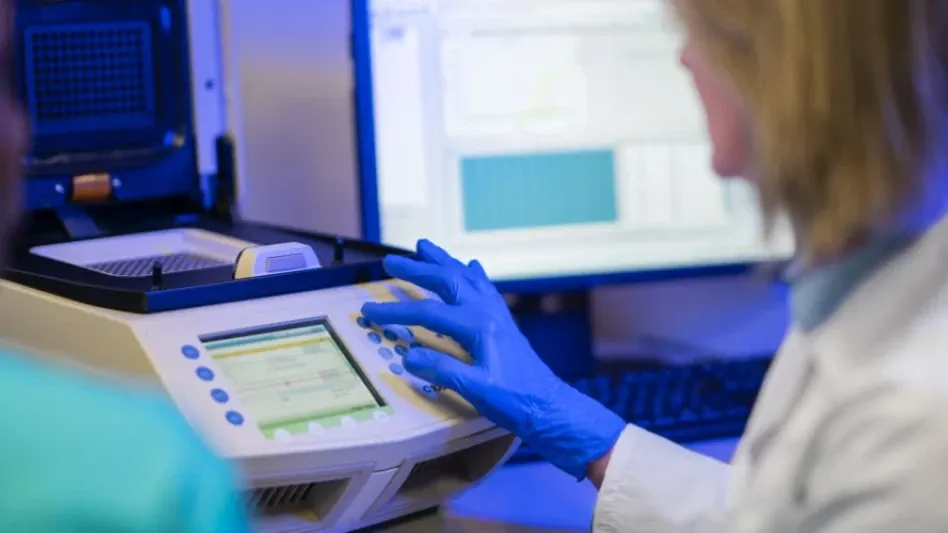The Data Act, effective from January 11, 2024, with its general application commencing from September 12, 2025, is set to revolutionize the medical and health device sector within the European Union (EU). This landmark legislation aims to regulate access to and equitable use of data generated by interconnected devices and services, fostering a data-sharing economy. The implications for IoT-based medical and health devices, such as pacemakers, continuous glucose monitoring (CGM) devices, smart insulin pens, and fitness trackers, are profound due to the significant changes in data governance it introduces.
Enhancing Data Accessibility for Innovation
The Data Act’s core objective is to enhance data accessibility in order to foster innovation and new business models, promoting a robust data economy within the EU. This pivotal regulation mandates that usage data, including metadata from connected devices, must be accessible to users and transferable to third parties under fair, reasonable, and non-discriminatory (FRAND) terms. The Act fundamentally emphasizes users’ rights to access and transfer data, ensuring transparency before contract conclusions.
For the medical device sector, this broader access to data means that companies must provide comprehensive information on the type, format, and scope of data generated by their devices. Ensuring data compatibility, interoperability, and portability becomes crucial, as these factors will determine the ease with which data can be shared and utilized across different platforms and services. Medical device manufacturers will need to update their technology frameworks to comply with these new standards, ultimately aiming to create a more cohesive and innovative environment for data usage.
The goal is to enable a more connected and responsive healthcare ecosystem where patient data from different sources can be seamlessly integrated and analyzed to support better clinical decisions and outcomes. The profound emphasis on fair and reasonable terms signifies a shift towards more transparent and consumer-friendly practices, thus promoting trust and participation in the data economy. This regulatory shift aligns with a broader vision of a unified digital marketplace where data serves as a cornerstone for growth and technological advancement.
Compliance and Data Controllers’ Responsibilities
The Data Act imposes comprehensive compliance requirements on data controllers regarding the lawful use of non-personal data based on contractual agreements. Companies within the medical device sector must navigate these regulations carefully to avoid potential legal pitfalls and ensure full compliance. This involves handling data in strict accordance with the Act’s stipulations and keeping users well-informed about their data rights throughout the process.
One of the principal risks for companies as data owners is the potential exposure of business secrets and valuable information to competitors. The right of data access and transfer granted to users necessitates the meticulous implementation of protective measures, such as confidentiality agreements and advanced technical standards, to safeguard trade secrets. The Data Act provides data controllers the allowance to withhold data if adequate protection measures are not agreed upon or implemented by users or third parties. This balancing act will be critical in maintaining competitive advantages while adhering to regulatory expectations.
Furthermore, the Data Act accords special consideration to the protection of trade secrets, allowing data controllers to refuse data access requests in exceptional circumstances where protective measures cannot prevent serious economic damage. Notifications to competent authorities and justifications for such decisions are required, with potential disputes subject to contestation. This delicate balance between promoting data accessibility and protecting sensitive business information demands robust strategies and resources from companies to ensure compliance without compromising their competitive edge.
Balancing Data Access and Trade Secret Protection
The careful interplay between data access and trade secret protection under the Data Act is vital for companies to master. With the new regulations, companies not only have to ensure they comply with the requirements but also develop strategies to safeguard their confidential information. Businesses need to invest in advanced data protection technologies and establish clear and stringent contractual terms with users and third parties to navigate through this regulatory landscape effectively.
This balancing act between promoting data accessibility and protecting sensitive business information is intricate. Companies must develop robust strategies to ensure they can comply with the Data Act while safeguarding their competitive edge. Investing in state-of-the-art data protection measures and technical standards is essential while establishing clear and enforceable confidentiality agreements will play a pivotal role. Additionally, businesses need to provide adequate training to their employees about data management protocols to mitigate risks associated with data breaches and unauthorized access.
The oversight mechanisms highlighted by the Data Act, such as the requirement to notify competent authorities and justify decisions to refuse data access, underscore the compliance burden on companies. However, adhering to these regulatory demands is essential for fostering a trustworthy data-sharing environment, which is indispensable for innovation and growth within the medical device sector. The protection of trade secrets, while allowing data access, will ensure that companies can confidently participate in the data economy without jeopardizing their hard-earned competitive advantages.
Interplay with GDPR and Other Regulations
Concurrency with existing regulations, most notably the General Data Protection Regulation (GDPR), introduces additional layers of complexity. The Data Act prioritizes GDPR, emphasizing the utmost caution in handling personal data, especially sensitive health data. Companies must identify legitimate legal bases for data processing and adhere to GDPR’s transparency obligations, thereby ensuring lawful and responsible data management practices.
Moreover, developments in the European Health Data Space (EHDS), which are aligned with the Data Act, reflect a broader regulatory landscape impacting the medical and health device sector. This synergy between various regulations highlights the need for companies to adopt a holistic approach to data governance, ensuring compliance with all relevant legal frameworks. Particularly, the interplay with Medical Device Regulation (MDR) and In Vitro Diagnostic Regulation (IVDR) is significant, given that the “access by design” mandate for products could necessitate substantial modifications subject to conformity reassessments.
The convergence of these regulations demonstrates the EU’s commitment to creating a comprehensive and cohesive data governance framework. For medical device manufacturers, this entails not only meeting the specific requirements of each regulation but also understanding their intersections and cumulative impact on product design and data management practices. Remaining vigilant and proactive in addressing these regulatory changes will be crucial for companies to maintain compliance and leverage the opportunities presented by a more integrated digital health ecosystem.
Strategic Adaptation and Product Development
The procedures for compliance with the Data Act are resource-intensive and time-consuming, demanding early and strategic incorporation of its requirements in product development cycles. Companies must proactively adapt by revising internal processes, product designs, and legal frameworks to align with new data access and protection standards. This proactive approach includes the pre-emptive establishment of clauses and conditions governing data transfer, within the confines of the Data Act, to protect business interests while promoting data sharing and innovation.
Early and strategic adjustments will be crucial to meet the September 12, 2025 compliance deadline. By incorporating Data Act requirements from the outset, companies can avoid costly and disruptive changes later in the product lifecycle. This includes thorough assessments of current data practices, identification of gaps, and implementation of necessary modifications to ensure compliance with the new regulations. Collaboration with stakeholders, including technology partners and legal advisors, will be vital to navigate the complexities of the Data Act effectively and integrate its mandates seamlessly into business operations.
Additionally, fostering a culture of continuous learning and flexibility within organizations will be essential to address the evolving regulatory landscape. Keeping abreast of regulatory updates, industry best practices, and emerging technologies will enable companies to anticipate changes and adapt proactively. By investing in robust data governance frameworks and maintaining an agile approach, businesses can not only ensure compliance but also position themselves as leaders in the data-driven healthcare economy. The transformative impact of the Data Act on the medical device sector underscores the need for strategic foresight and proactive adaptation to thrive in an increasingly regulated and data-centric environment.
Navigating the Future of Data Management
The Data Act, which comes into effect on January 11, 2024, and will be fully enforced starting September 12, 2025, is poised to transform the medical and health device industry within the European Union (EU). This groundbreaking legislation is designed to oversee access to and the fair use of data generated by interconnected devices and services, thereby promoting a data-sharing economy.
For the IoT-based medical and health device sector, such as pacemakers, continuous glucose monitoring (CGM) devices, smart insulin pens, and fitness trackers, the implications are significant. The act introduces major changes in data governance, underscoring the need for regulated access and equitable use of the vast amounts of data these devices produce. By formalizing how data can be shared and accessed, the legislation aims to spur innovation while ensuring patient privacy and data security.
The Data Act’s drive for a more unified and controlled approach to data sharing means stakeholders, including manufacturers, healthcare providers, and patients, will have clear guidelines on data usage. This will not only help in the development of new technologies and treatments but also ensure that patients’ data rights are protected.
In summary, the Data Act represents a pivotal shift in how medical and health device data is managed within the EU, balancing the need for innovation with the imperative of data privacy and security.









